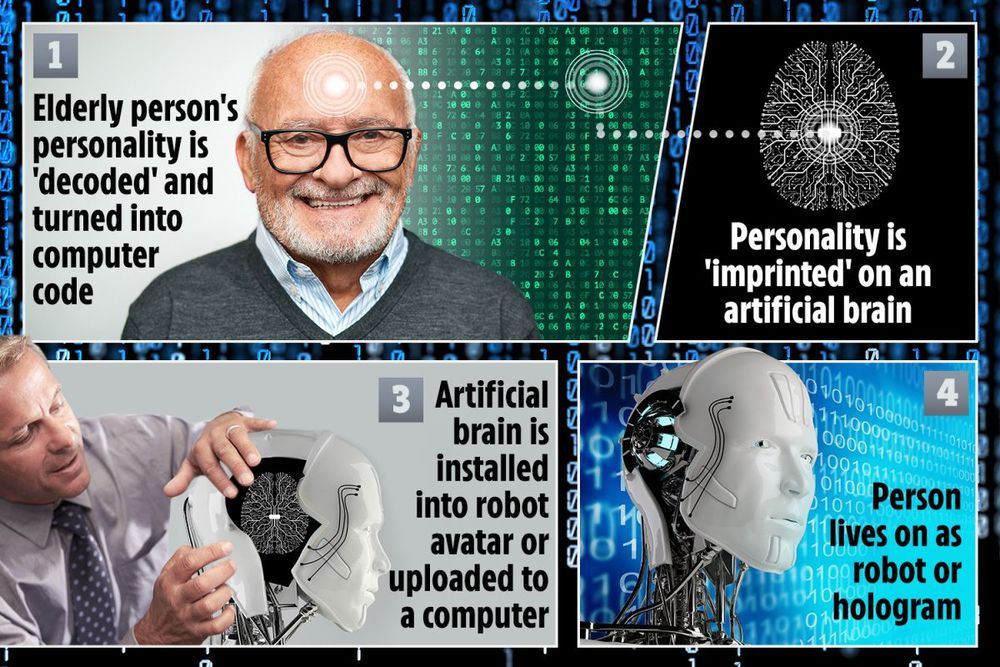Machine intelligence is helping to overcome antibiotic resistance.


Four years ago, Todd Rider was on top of the world. The MIT-trained bioengineer had developed a radical idea for killing viruses. Initial test results showed that his therapy, called DRACO, could kill every virus he threw it at: 15 viruses were killed in human cells, and two in mice.
It seemed like there was a chance it could be the biggest discovery in medicine since the invention of antibiotics. Enthusiastic headlines praised the potentially world-changing panacea. “Todd Rider Has a Kill Switch for Viruses,” wrote Bloomberg Businessweek. The Verge: “Killing sickness: is DRACO a doomsday device for viruses?” Time magazine declared it one of the top 50 inventions of the year.
Yet over the next few years, things started going wrong. Rider moved from lab to lab and says he couldn’t raise the money to continue testing DRACO, despite, he claims, the continued promise of the concept.


#Israeli-made transportation app Moovit is continuing its global expansion and now provides its #urban mobility service in a total of 100 countries.
Moovit uses up to six billion anonymous data points daily, the company says, “to add to the world’s largest repository of transit and urban mobility data.” In addition to its popular app, the Ness Ziona-headquartered company also provides analytics platforms to cities, transit authorities and businesses, enabling optimized planning and operations for residents and employees.
“Urban mobility is the lifeline to jobs, healthcare, and education, so we are so proud that in just a few years Moovit is now providing service to millions of users in 100 countries, helping them get from A to B with confidence and convenience,” said Moovit co-founder and CEO Nir Erez.
“We have grown drastically, from offering a consumer app, to also now licensing a multitude of MaaS solutions to cities, governments, and transit agencies. We are also glad to see the likes of Uber, Microsoft, and Cubic choosing Moovit’s high-quality MaaS platform to power their mobility offering.
Moovit also announced the appointment of Uli Gal-Oz as the company’s new vice-president of business development. Gal-Oz, who most recently served as vice-president of business development at Magisto prior to its $200 million acquisition by Vimeo, will be tasked with overseeing Moovit’s initiatives with strategic partners and customers — including Uber, Microsoft and Cubic.

This is a guest post by Mohammed Murad, vice president, global sales and business development, Iris ID.
The world is in the grip of a coronavirus epidemic the impact of which extends well beyond people’s health, including more than 1,300 reported deaths. The fear of this recently identified disease has closed businesses and grounded thousands of flights. The impacts have led to estimates of reduced economic growth in many countries.
While the virus that was first discovered in a Chinese province has killed far fewer people than influenza this year, the fatality rate has people worried. Influenza reportedly kills between 10 to 20 people per 100,000 infections each year. The death rate from the coronavirus tops 2,300 deaths per 100,000 cases. Those latter statistics change virtually daily as more cases of the virus are reported.

A Google AI tool that can recognise and label what’s in an image will no longer attach gender tags like “woman” or “man” to photos of people. Google’s Cloud Vision API is a service for developers that allows them to, among other things, attach labels to photos identifying the contents. The tool can detect faces, landmarks, brand logos, and even explicit content, and has a host of uses from retailers using visual search to researchers identifying animal species.

A BONKERS Russian billionaire claims he’ll make you immortal by 2045.
Internet businessman Dmitry Itskov, 38, is bankrolling a far-fetched plan to uploaded people’s personalities to artificial brains.
These “brains” can then be jammed into robots or holograms, allowing us to live on forever as artificial versions of ourselves, Dmitry claims.

PepsiCo’s Senior VP of R&D, Dr. Ellen de Brabander, joins me on this ideaXme (http://radioideaxme.com/) episode to talk about running the R&D engine for a $200 billion company, the parallels between pharma and food in terms of increasing customization / personalization, and her future visions for the $8 trillion global food and beverage space — (Personal caveat — While I avoid processed foods, one cannot ignore the place at the table that “big food” will have in crafting and investing in the future of health, wellness, and longevity) — https://www.youtube.com/watch?v=tDSiVlKNnRA&t=1 #Ideaxme #Pepsi #Nutrition #Research #Science #Health #Wellness #Sustainablity #Longevity #FritoLay #Tropicana #QuakerOats #Gatorade #Aquafina #MountainDew #Doritos #Cheetos #Ruffles #Tostitos #Fritos #Biotech #LifeExtension #Aging #IraPastor #Bioquark #Regenerage
Ira Pastor, ideaXme exponential health ambassador, interviews Dr. Ellen de Brabander, Senior Vice President Research and Development at PepsiCo.
Ira Pastor Comments:
Today we are going to segue into the food industry, which is a fascinatingly complex and diverse set of businesses that supplies most of the food consumed by the global population.
In 2020, food, needless to say, is much more than just calories.

Prosthetic hands restore only some of the function lost through amputation. But combining electrical signals from forearm muscles with other sources of information, such as eye tracking, promises better prostheses. A study funded by the SNSF gives specialists access to valuable new data.
Page Content
The hand is a precious limb. Its 34 muscles and 20 joints enable movements of great precision and complexity which are essential for interacting with the environment and with others on a daily basis. Hand amputation thus has severe physical and psychological repercussions on a person’s life. Myoelectric prosthetic hands, which work by recording electrical muscle signals on the skin, allow amputees to regain some lost function. But dexterity is often limited and the variability of the electrical signals from the forearm alone makes the prosthetics sometimes unreliable. Henning Müller, professor of business informatics, is investigating how combining data from myoelectric signals with other sources of information could lead to better prosthetics. Müller has now made available to the scientific community a dataset that includes eye tracking and computer vision as well as other information (electromyography and acceleration sensor data).